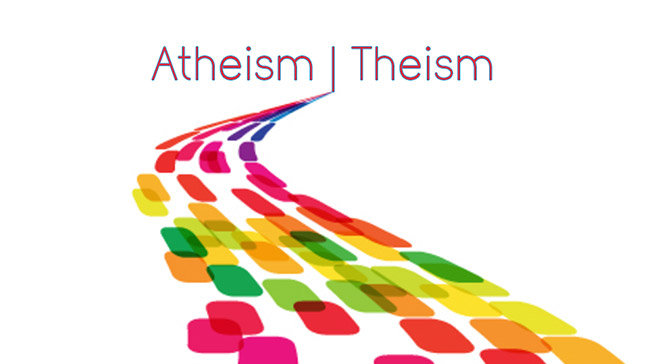If Atheism is True...
I hear this sometimes from Christian YouTubers. They start out some "line of reasoning" with "If atheism is true..." What follows is usually a smug disquisition on how empty our lives would be on some level or how irrational we would have to be. We would have to believe that everything came from nothing. We would have no basis for any kind of morality. We would have to accept that humans are not special.
There is a problem with this line of thinking. Atheism cannot be true or false. Likewise, neither can theism.
These are descriptions that fit exactly one belief: do you believe a god exists or not. If you say yes, you are a theist. If you say no, you are an atheist. It really is that simple.
Believing in a god does not describe anything else you believe in. Likewise with absence of belief in one. At most, you don't ascribe anything to a god.
Under theism, a person might choose to be in an organized religion or they might just believe in a god without accepting any. They might think this god created everything and takes no interest in our existence. They might think the universe is synonymous with god.
Theism is not a worldview or ideology, so a theist has choices to make about what that belief means to them. Granted, most people are born into a religion and don't weigh their religious beliefs in quite the manner I mean. In the US, they might consider various forms of Christianity, choosing one that fits their worldview, and in the Middle East, people will likely follow some form of Islam. There's also nothing stopping a person from creating their own view of their god.
There are of course atheistic religions, like Buddhism for example, and communism claimed to be atheistic (although they often used church channels). Some of the deal with communism has to do with undercutting the political power of the Catholic or Orthodox churches. When people conflate atheism and communism, this is an equivocation problem. Communism, as practiced by the Soviet regime for example, did not slaughter people because of their belief in god. They were persecuting people for not adhering to the political dictates. It would be like ascribing all the murder during the crusades to theism. In reality, the crusades were about Catholic and Muslim ideologies - both backed by a belief in a god, but the god belief was not why people fighting. They were fighting over which god belief should rule a tiny sliver of land.
But returning to the main topic, if atheism is true does not make sense as an utterance. What is meant is, if atheists are correct in not accepting the god claims, then... well, you have a whole lot of things to work out.
Religions often offer people a whole neat package of goods so that they don't ever need to answer tough questions. Sure, religious people engage in considering what their beliefs mean or what they should do. They aren't stupid because they believe and they aren't completely passive in their considerations. What I mean is, once you've accepted a religion, it often comes with a lot of pretend answers about an array of topics. Where did the universe come from? God. Where did we come from? God. Where do we get our morals? God. What happens after death? God rewards or punishes us.
Keep in mind none of those answers really explains anything. We don't understand how god created everything. It's not clear how god gives us morals since the Bible is a book that says anything you want and religious people don't agree on the reward/punishment after death part of the deal. One could even say that having these explanations is a hindrance since, if a person discovers something contrary to that biblical account, they have to discard it or find an explanation in line with what they already believe. Also, that morality from the Bible comes with a number of caveats about ignoring what they don't want to believe.
Nonetheless, that belief in god is a comforting backstop for beliefs. It is hard to argue with "God says so."
And I guess it's scary for some people to think that there is nothing at the end of their line of reasoning. Where does the universe come from? Let's see what cosmology and astrophysics say! Let's go do some exploring! If we can, let's go do some math and experimentation! Are we right? Well, the evidence shows this, so we're likely right.
Where did we come from? Let's go see what abiogenesis and the theory of evolution say! And like with other sciences, maybe we want to contribute to that knowledge by becoming a biologist or other scientist. Are we right? Well, we don't have all the answers, but we have a lot of them.
Where do we get our morality? Let's start building a system! What does it even mean to be moral? What are we trying to accomplish? What are our goals? What can we agree on? It's not easy. It's a discussion, and we are bound to get it wrong sometimes.
What happens after we die? The world goes on and we don't exist anymore. Are we sure? Nope.
You lose the certainty, but you gain a whole lot of insight. You may not know everything, but what you know matches reality.

Comments
Post a Comment